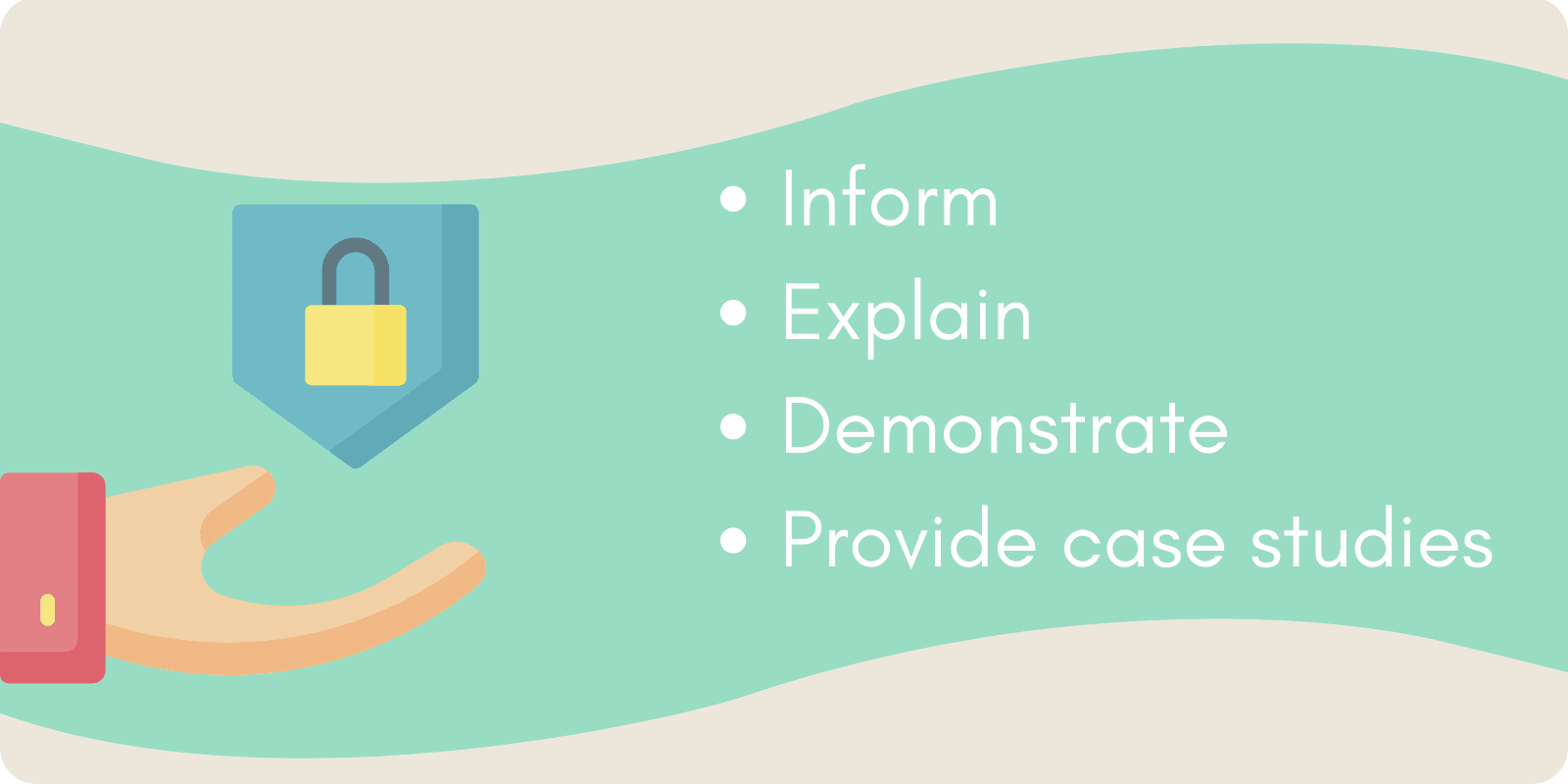
Building trust is the cornerstone of a good business relationship. Effectively demonstrating your organization’s commitment to protecting data and complying with privacy regulations is a significant factor in a customer’s business decisions.
Here is a quick cheat sheet for security communications with clients:
- Inform clients what your security measures are — be specific.
- Explain the reasoning behind these policies
- Demonstrate how they will improve the client’s security
- Provide case studies to provide hard evidence that these methods are successful
The Importance of Being Transparent
The simple adage “honesty is the best policy” is an excellent motto when it comes to communicating security measures in place to protect your client data.
However, saying, “We protect your data using the latest technology,” doesn’t inspire confidence. Instead, highlight how your security is built into each layer of infrastructure to prevent fraudulent access, detect threats, and recover from disaster.
Here is a better example for an encrypted private vault NordLocker:
“At NordLocker, we believe in facilitating a culture of research-based, technology-forward innovations in security. First, we instigate vigorous product tests throughout the software development timetable to ensure its safety, layering each network in the infrastructure with replication, backup, and recovery plans.
Our networks are encrypted and armed with advanced threat detection and lockdown failsafe. We hold ourselves to the highest authentication and user permission verification standard to keep you and your data secure.”
The online world can be frightening, especially for customers who are skeptical about sharing their data with anyone, so detailing all the essential points helps put their minds at ease.
Being honest, specific, and forthcoming about your security measures helps to instill confidence in your business. Don’t be vague. Let your clients know your policies and exemplify transparency in your dealings online and in person.
Providing case studies for them can go a long way to reassuring your clients that your methods are tried and trustworthy protective measures. This process is no different than supporting any other argument using relevant evidence from well-respected sources for support:
“According to research by X technology institute, the Y security measure has a 99.9% success rate, and backup precaution Z will mitigate even that tiny risk margin.”
Explain Your Clients’ Role in Safeguarding Their Data
Another critical point in communicating about security regarding sensitive information is explaining the reasoning behind your security measures and ensuring your clients can easily understand their role in safeguarding their data.
It’s easy to say, “Use multifactor authentication to add a layer of protection for your data.” A client who doesn’t understand the value of this quintessential security tool may disregard its use altogether.
As such, it’s more prudent to outline why clients would want to add a layer of security to their account by going into detail and revealing why these security measures exist to help the client:
“Hackers can access old passwords by brute forcing hashed versions of them, among other methods. Once they’ve got your username and password, chances are they can access your accounts unless you have multifactor authentication turned on. Doing so requires you to respond to a text or email sent to your account, which may alert you to the hacker’s attempts and gives you control over your data.”
The Bottom Line
Cybersecurity is a hand-in-hand relationship between clients and businesses. The business is responsible for providing adequate security measures (and ensuring the client understands them), and the client is responsible for safeguarding their data wherever possible.
Outlining your company’s security policy in detail gives the client confidence and trust in your company to protect their sensitive data.

